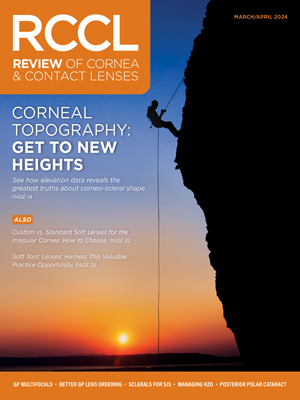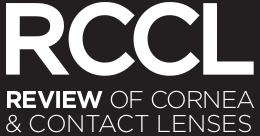Under the clinical settings of the Dry Eye Workshop treatment guideline for mild dry eye disease (DED), researchers performed an analysis of 60 patients with DED to evaluate the efficacy of hypotonic sodium hyaluronate (SH) 0.18% solution eye drops.
They treated patients with Level 1 DED with either isotonic SH 0.1% (Group 1) or hypotonic SH 0.18% eye drops (Group 2); Level 2 DED patients received fluorometholone 0.1%, cyclosporine 0.05% plus either isotonic SH 0.1% (Group 3) or hypotonic SH 0.18% eye drops (Group 4). Tear film break-up time (TBUT), Schirmer test, corneal staining with fluorescein and ocular surface disease index (OSDI) score were recorded at baseline, one month and three months following treatment.
The researchers published their results in the September 2014 issue of Cornea. In Group 2, they found that TBUT at three months (p=0.03) and corneal staining scores at one and three months (p≤0.03) were significantly improved after the treatment compared with baseline scores, whereas they noted that these parameters were not changed during the follow-up period in Group 1. In Groups 3 and 4, they reported that TBUT and corneal staining scores at one and three months, and OSDI score and Schirmer’s test results at three months following the treatment showed significant improvements compared with the baseline score (p<0.05). Additionally, Group 4 patients showed an extended TBUT and an improved corneal staining score (p≤0.01) at three months and after treatment, compared with the values of Group 3.
The researchers concluded that hypotonic SH 0.18% seemed effective in improving tear film stability and ocular surface integrity compared with isotonic SH 0.1% eye drops in patients with mild DED.
1. Lee HS, Ji YS, Yoon KC. Efficacy of hypotonic 0.18% sodium hyaluronate eye drops in patients with dry eye disease. Cornea. 2014 Sept;33(9):946-51.


